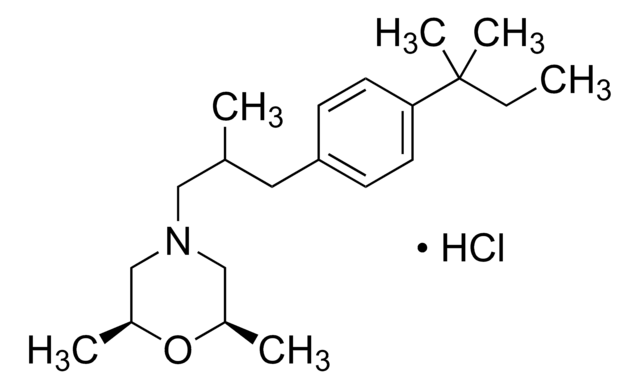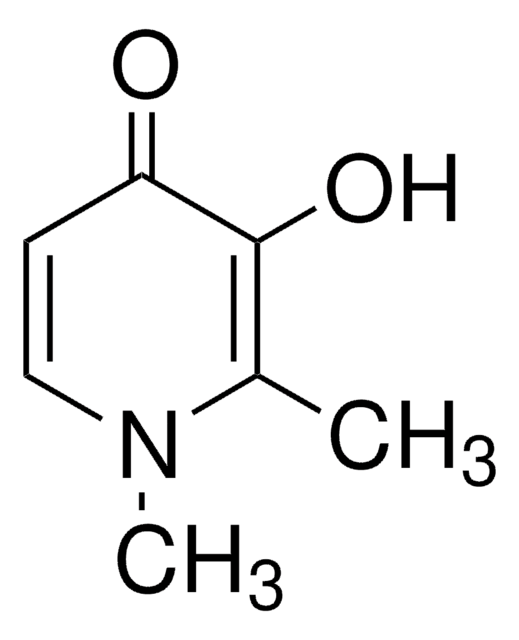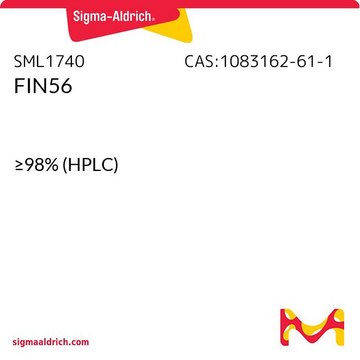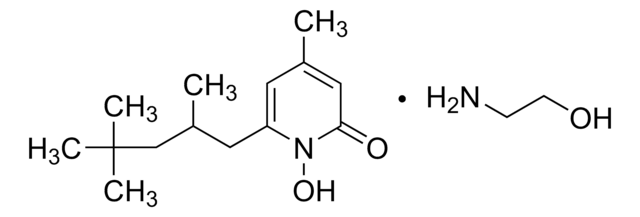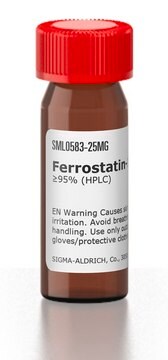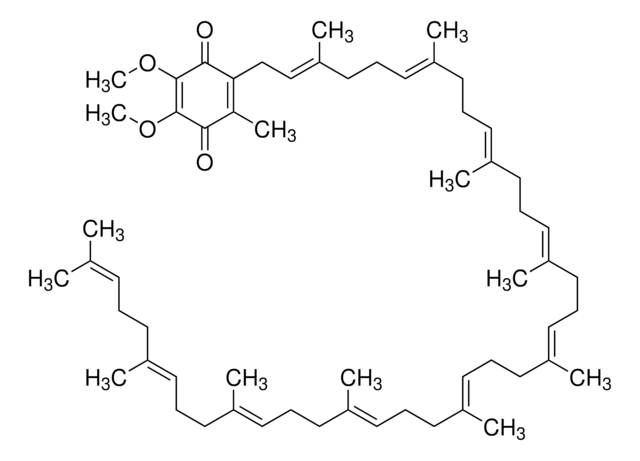SML2011
Ciclopirox
≥98% (HPLC)
Synonym(s):
Ciclopirox, 6-Cyclohexyl-1-hydroxy-4-methyl-2(1H)-pyridinone, HOE 296b, 6-Cyclohexyl-1-hydroxy-4-methyl-2(1H)-pyridone
About This Item
Assay
≥98% (HPLC)
form
powder
color
white to beige
solubility
DMSO: 2 mg/mL, clear
shipped in
ambient
storage temp.
2-8°C
SMILES string
ON1C(C2CCCCC2)=CC(C)=CC1=O
InChI
1S/C12H17NO2/c1-9-7-11(13(15)12(14)8-9)10-5-3-2-4-6-10/h7-8,10,15H,2-6H2,1H3
InChI key
SCKYRAXSEDYPSA-UHFFFAOYSA-N
Looking for similar products? Visit Product Comparison Guide
Biochem/physiol Actions
Signal Word
Warning
Hazard Statements
Precautionary Statements
Hazard Classifications
Acute Tox. 4 Dermal - Acute Tox. 4 Inhalation - Acute Tox. 4 Oral - Eye Irrit. 2
Storage Class Code
11 - Combustible Solids
WGK
WGK 3
Certificates of Analysis (COA)
Search for Certificates of Analysis (COA) by entering the products Lot/Batch Number. Lot and Batch Numbers can be found on a product’s label following the words ‘Lot’ or ‘Batch’.
Already Own This Product?
Find documentation for the products that you have recently purchased in the Document Library.
Customers Also Viewed
Our team of scientists has experience in all areas of research including Life Science, Material Science, Chemical Synthesis, Chromatography, Analytical and many others.
Contact Technical Service
